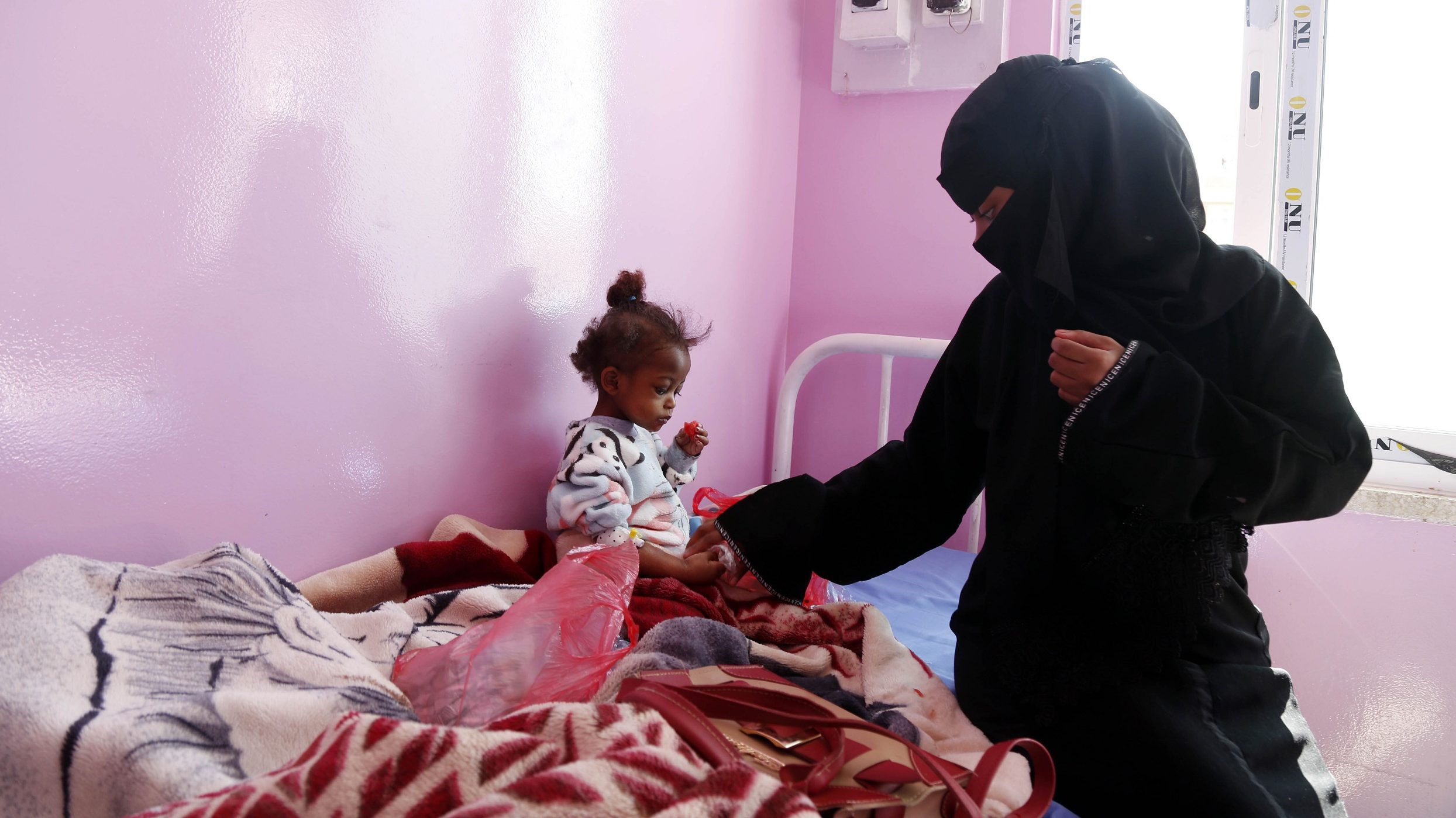War in Yemen Kills 4 Children Every Day but Safety Requires More Than a Truce
Experts say UNICEF report won’t motivate the parties to negotiate peace
Over 11,000 children have been either killed or wounded in Yemen since 2015, according to a UN Children’s Emergency Fund (UNICEF) report released on Monday. This number only includes UN-verified incidents; the real number is much higher, the report says. But experts say these figures will have no effect on the warring parties’ motivation to put a stop to the fighting.
Regardless, to ensure the safety of the country’s children, much more than just a truce is required. Children in Yemen are not only endangered by airstrikes and gunfire but from effects of the war that can persist for a long time after the fighting ends.
The civil war in Yemen started in 2014 when the Iranian-backed Houthi insurgent group took control of the country’s capital Sanaa and, in January 2015, forced President Abed Rabbo Mansour Hadi to resign. A month later, Hadi rescinded his resignation, and in March, a Saudi-led coalition intervened against the Houthis. The civil war has created one of the worst humanitarian crises of the modern era.
A two-month UN-brokered truce between the government and the Houthi forces was first agreed to on April 2 of this year and then extended twice, but officially ended in October.
According to the report, an average of four children have died per day since the escalation of the conflict in 2015.
Despite the worrying figures presented in the UNICEF report, Elisabeth Kendall, a Middle East expert and mistress of Girton College at Cambridge University, tells The Media Line that she does not believe these will serve as motivation for a new truce.
“I think the warring sides have become desensitized to death and destruction. War has become a way of life,” she says. “I’m not optimistic that this terrifying number of child deaths will have any impact on efforts to revive the truce,” Kendall continues.
This holiday season, give to:
Truth and understanding
The Media Line's intrepid correspondents are in Israel, Gaza, Lebanon, Syria and Pakistan providing first-person reporting.
They all said they cover it.
We see it.
We report with just one agenda: the truth.


However, despite that the truce, which with its extensions lasted more than half a year and represented the most peaceful period in the country since 2015, Yemeni children were never safe.
Yemeni Ambassador Mohamed Qubaty, a former minister who held the tourism and information portfolios in the Yemeni cabinet, told The Media Line, “The overall suffering of the children of Yemen has continued to be the same and never actually changed over time since the beginning of the talks of the so-called truce,” he says.
Kendall explains that children in Yemen die not only because of violence directly caused by the active war; the danger comes from many different directions.
“It’s not just a result of airstrikes, which have subsided in recent months, but starvation, lack of access to clean water, the destruction of health facilities, and the spread of preventable diseases,” she says. “Even during the truce, children continued to be killed by landmines,” she adds.
She says that although the truce expired in October, airstrikes have not yet resumed with the previous intensity. However, “children continue to be killed, maimed, exploited, and traumatized by a whole range of ongoing factors, from landmines to diseases and child recruitment,” she says.
Qubaty stresses that the Yemeni people must oppose child recruitment. “The people of Yemen need to raise awareness regarding the criminal practices of recruiting children to the war effort, besides debunking all corruption, mismanagement, and inefficiency of the Yemeni government officials and their mishandling of all the international aid received,” he says.
He also believes that “the UN and the international community need to take a clear stance and frankly condemn the Houthi intransigence toward peace and the continued Iranian supply of weapons and drones for them.”
Kendall notes that the UN offices in Yemen desperately need steady and reliable funding to put long-term programs in place. “This crisis cannot be solved while the UN response remains severely underfunded, and its programs and local staff suffer the unpredictability of on-off funding,” she says.
Most of all, she continues, “the international community needs to find better ways to leverage the warring parties into renewing the truce and progressing to genuine peace talks.”
Kendall says it is important to pay attention to what she calls “the hidden dangers for children,” such as the education crisis.
“This receives little attention as it doesn’t directly kill or maim, but long-term will have hugely negative consequences,” she says, adding that an entire generation of children is being deprived of the education that integrates them socially and will one day allow them to contribute to rebuilding their society.

